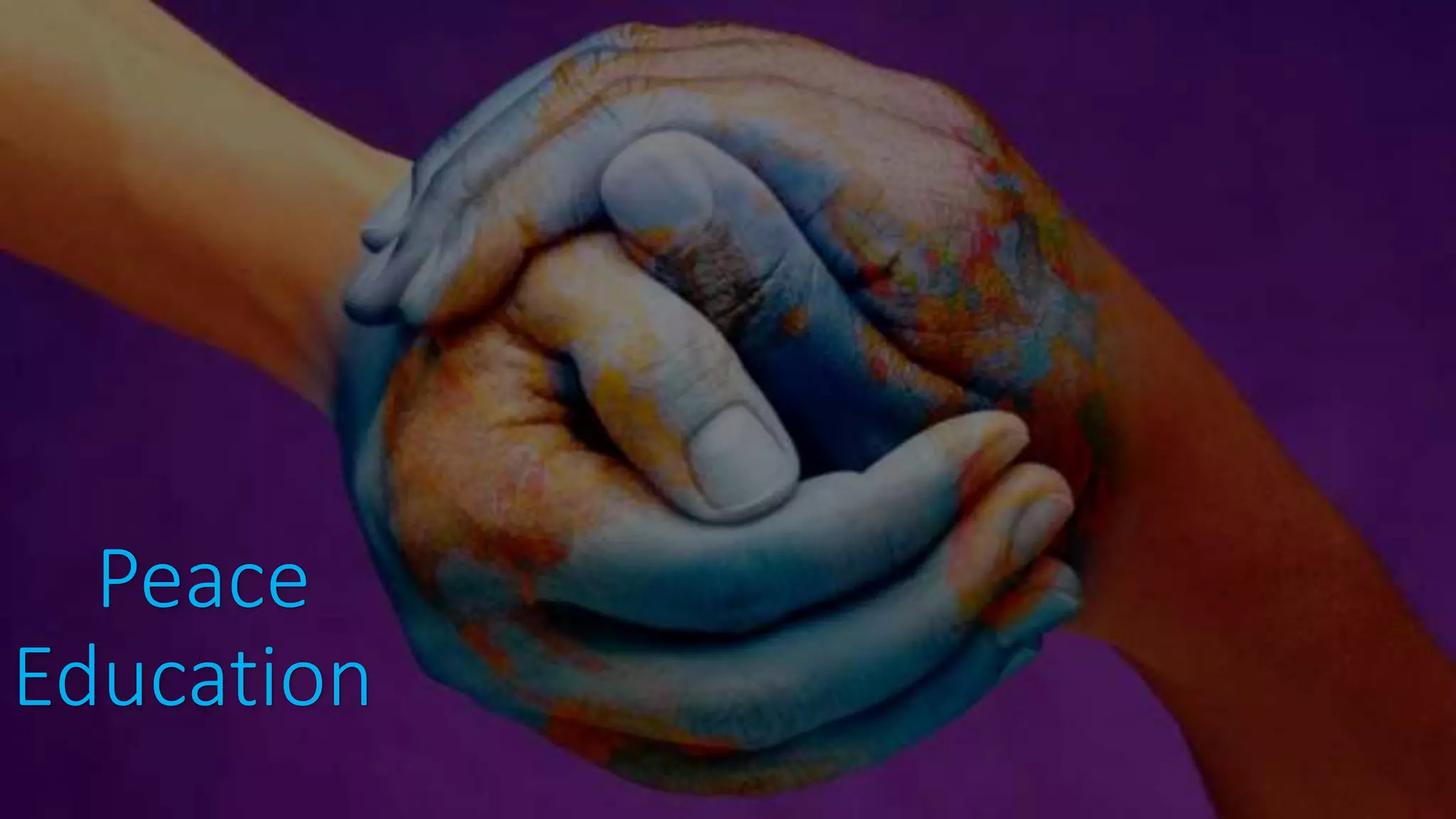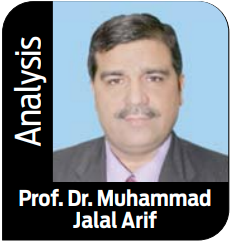
Dr. Muhammad Shahzad Ashfaq
In a world plagued by conflict and instability, ensuring a steady environment for development is essential to a country’s economic growth. Pakistan, a nation with a rich cultural heritage and immense potential, has caught in the clutches of violence. The environment of aggression has hindered progress and impeded the country’s path towards economic prosperity. To secure a brighter future, it is imperative to prioritize peace education as the bedrock of Pakistan’s economic growth.
Peace education aims to cultivate a culture of non-violence, empathy, and respect among individuals, ultimately creating a society that is tolerant. Peace education focuses on teaching individuals the skills, values, and attitudes necessary to resolve conflicts peacefully, promote social justice, and maintain peace. Central to peace education is the idea that violence is not the answer to conflicts and disagreements. Instead, it emphasizes the need to find peaceful solutions that promote understanding and cooperation. By incorporating peace education into the national curriculum, Pakistan can lay the foundation for a steady environment that is conducive to economic progress.
Pakistan is a multi-ethnic, multi-religious, and multi-linguistic society, where different groups often find themselves at odds with one another. This lack of understanding breeds mistrust, fuelling conflict and hindering economic growth. The value of respecting diversity and appreciating in different perspectives, peace education can bridge these divides and promote inclusivity. People will be more accepting of one another, leading to stronger social cohesion and a stable environment that encourages economic engagement. These skills are not only crucial for the prevention of conflicts at the societal level but also find practical application in business and international relations. A society that is skilled in resolving conflicts peacefully is more likely to attract investment, engage in productive dialogue, and build strong partnerships with other countries. Consequently, this creates a favourable economic climate allowing businesses to flourish and promoting Pakistan’s economic growth.
In today’s globalized world, where economies are interconnected peace and stability play a crucial role in attracting investment and fostering economic development of Pakistan. To begin with, a society that prioritizes peaceful conflict resolution establishes a stable environment, which is essential for businesses to thrive. Investors seek stability as it reduces risks and uncertainties associated with conflicts. When a society demonstrates its ability to resolve conflicts it signals a favourable investment to attract both foreign and domestic investors, leading to increased capital flows into the country.
A society that resolves conflicts peacefully is more likely to engage in productive dialogue with both internal and external stakeholders. Productive dialogue fosters cooperation, trust, and understanding among different groups within the society. Societies that ensure equality and justice foster an environment of trust. By promoting gender equality, eliminating discrimination, and safeguarding human rights, a nation encourages the full participation of all its citizens in economic activities. This inclusiveness fosters innovation enhances productivity, and taps into the potential of previously marginalized groups that leads to better economic outcomes for all. When conflicts are resolved through dialogue, it allows for the sharing of perspectives and the finding of common ground. This open exchange of ideas enhances innovation, encourages creativity, and leads to the development of practical solutions to societal challenges. As a result, businesses can operate in an atmosphere conducive to growth and progress further bolstering Pakistan’s economic prospects.
It nurtures a sense of responsibility towards others and encourages individuals to contribute to the welfare of society. By fostering a caring and compassionate populace, peace education struggles social inequality and promotes equal opportunities for all. This is vital for economic development as a society that ensures the well-being of its citizens invests in their education, and protects their rights is more likely to have a prosperous economy. When individuals have access to quality healthcare, adequate nutrition, and other necessities, they are better equipped to lead productive lives. Good health acts as a catalyst for economic growth by reducing absenteeism, increasing worker productivity, and lowering healthcare expenses. Moreover, societies that prioritize healthcare can better ease the impact of pandemics, epidemics, and other health crises enabling them to sustain economic activities even in difficult times.
Education is the cornerstone of societal development and economic growth. Investments in education facilitate the development of human capital, fostering innovation, and encouraging creativity. By offering quality education to all members of society, a nation expands its talent pool, improves workforce skills, and attracts investment. This creates an environment conducive for innovation and entrepreneurship leading to economic diversification and a higher standard of living for its citizens. As we move forward, it is crucial for policymakers, businesses, and citizens to recognize the vital role played by societal well-being in fostering economic development. When a majority of citizens have access to economic opportunities, they become active participants in the economy-driving consumer spending innovation, and entrepreneurship. By ensuring the well-being of citizens, societies can create the necessary conditions for growth, innovation, and sustainability.
Pakistan’s economic future lies in a steady environment, free from the shackles of violence and conflict. Peace education, as the bedrock of this environment, offers a comprehensive framework for fostering understanding, tolerance, and conflict resolution skills among individuals. By incorporating peace education into the national curriculum, Pakistan can thrive economically attracting investment. By investing in renewable energy sources, reducing carbon emissions, and adopting sustainable practices, a nation can mitigate the impact of climate change on its economy. This leads to long-term stability and resilience, ensuring economic prosperity for future generations. Moreover, peace education creates a society that actively works towards inclusive growth and equal opportunities for all its citizens. Therefore, it is crucial that Pakistan takes the necessary steps to prioritize peace education as it paves the way for a prosperous and peaceful future.
Writer is Postdoctoral Fellow in International Islamic University Islamabad


